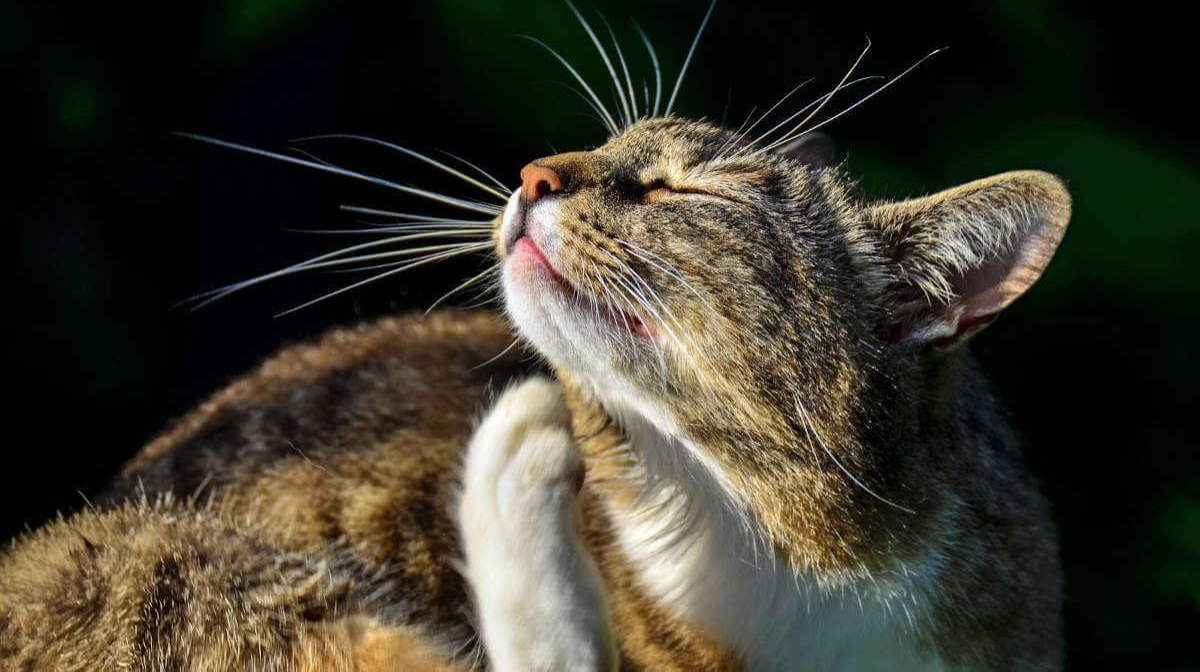
The lifestyle and activities of your cat can make it difficult to prevent cat fleas as they build up in the crevices of your furniture and can survive for up to six months! Further, a single cat flea can lay up to 2,000 eggs in its lifetime! It is therefore important that you treat not only your cat, but also your house to ensure that your cat’s and your own health is maintained. James Wellbeloved looks into the best ways to treat your cat when it comes to fleas and suggest good methods of detecting whether your cat has fleas.
WHAT ARE CAT FLEAS?
Cat fleas are parasitic insects which carry diseases. When cats get fleas, it can lead to some developing allergies known as flea-allergic dermatitis. Fleas can also be infected with tapeworm eggs, that could be swallowed by your cat whilst grooming. Cat fleas can also spread disease, including Bartonella and also, although rare, a human disease called typhus.
HOW DO CATS GET FLEAS?
Cats can get fleas from coming into contact with other animals that are carrying fleas. Cat fleas can also live in carpets and soft furnishings after a previous infestation where they weren’t completely removed. Cats can also bring flea eggs in from outside, as in warm weather outdoor areas are a good environment for fleas to live in.
SIGNS YOUR CAT HAS FLEAS
There are several indications that your cat has fleas. Your pet may:
Frequently scratch
Have bald/sore areas
Have spots or scars
Have redness/irritation
Have thickened skin in areas
Have visible black/brown spots in fur that move around
WHAT FLEA BITES CAN DO
Flea bites can not only make your cat itch frequently but can also cause further complications that can be dangerous for them, such as:
Your pet may be hypersensitive to flea saliva and could have an allergic reaction
As fleas feed on blood, young, elderly or unwell animals can become anaemic due to blood loss if bitten too many times
The flea can become infected with tapeworm eggs; if your pet eats an infected flea then they can become the parasite’s host, so they will need to be treated for worms as well
Fleas can pass diseases to your cat
HOW TO GET RID OF FLEAS
It should be fairly easy to get rid of fleas. The most important thing is to treat your pet and home quickly. You can do the following to help prevent or get rid of fleas:
Regularly using flea treatment for your pets – your vet can advise you on which treatment would be best for your cat
Clean bedding regularly
Vacuum furniture, floors and skirting boards
Frequently wash soft furnishings in the home i.e. cushion cases
Change the dust-bag in your vacuum cleaner after each use
After vacuuming carpets, spray house flea treatment onto the carpet, along skirting boards and other crevices. Always follow manufacturer’s guidelines on ventilation and possible exclusion of pets during treatment
One way that you can check for fleas is by grooming your cat with a fine-toothed comb over a white surface, so that you will be able to see if any fleas fall out. You can also further test the droppings from the grooming by putting them onto damp tissue, where the dark specks will turn red due to the blood that they digest. Regular grooming will make it easier and quicker for you to spot fleas on your cat.
TREATMENT FOR FLEA BITES
Some of the products used to treat your cat include:
Spot on cat/kitten flea treatment, a liquid that can be applied to the back of the neck
Tablets and injection which prevents the development of eggs into fleas
Cat/kitten flea treatment powders which are only active whilst in the fur and only kill adult fleas
Cat/kitten flea collars which contain growth-inhibiting substances that prevent fleas from growing
Cat/kitten flea treatment shampoo which only kills the fleas on your pet during the shampooing
Certain products are more effective for preventing and getting rid of fleas, so it is always best to consult your vet for advice on which product is best for your cat.

Related Articles








